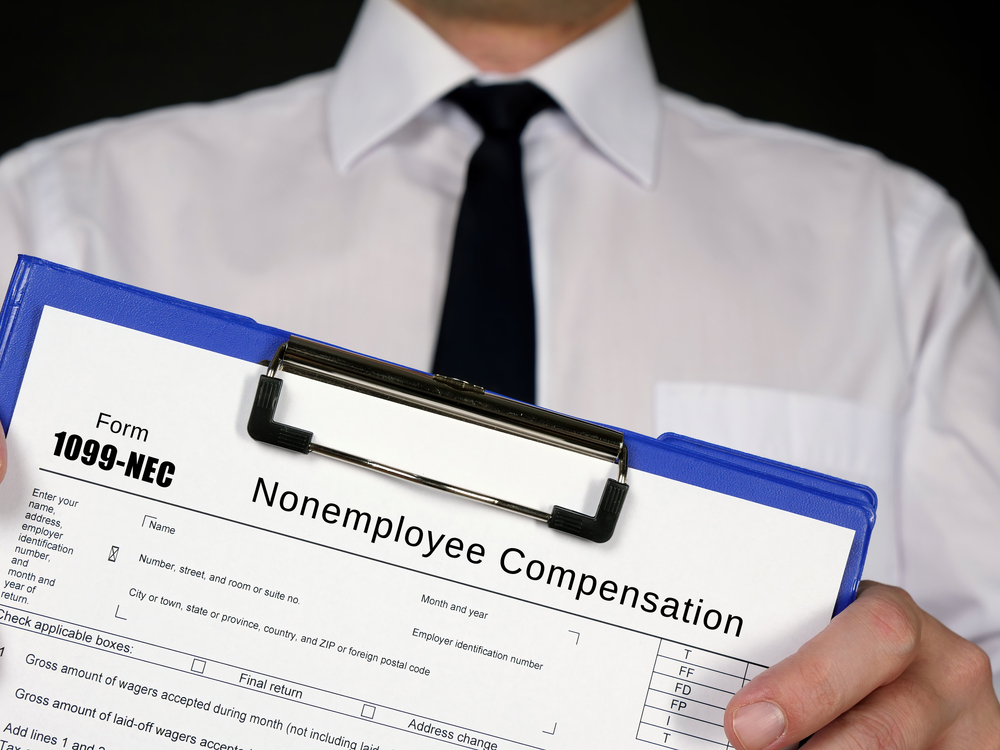Nonprofit organizations, despite their tax-exempt status, are not exempt from the responsibility of adhering to certain tax reporting requirements. One key aspect of these requirements is the issuance of Form 1099-NEC (Nonemployee Compensation).
This form is crucial for nonprofits to understand and properly handle to maintain compliance with IRS rules and avoid penalties. In this blog post, we’ll explore who nonprofits need to send 1099s to, who is exempt, and the consequences of failing to meet these obligations.
Understanding 1099s. Who Needs Them?
The IRS requires that Form 1099-NEC be sent to any individual, partnership, LLC, or unincorporated entity to whom the nonprofit has paid at least $600 in rents, services (including parts and materials), prizes and awards, or other income payments during its trade or business during the tax year. This includes payments to freelance workers, independent contractors, and other non-employees who provide services to the organization.
Who Should Receive a 1099?
Independent Contractors
This is the most common category. If your nonprofit hires a freelancer or an independent contractor and pays them $600 or more for their services in a year, you need to send them a 1099-NEC.
Service Providers
Lawyers, accountants, and other professionals who are not on your payroll but have been paid for their services must receive a 1099 if the payment threshold is met.
Landlords
If your nonprofit rents office space or equipment and pays the landlord $600 or more in a year, a 1099 is required.
Who Doesn’t Need a 1099?
Corporations
Payments made to C or S corporations typically do not require a 1099, except in the cases of legal services.
Employees
Regular employees do not receive 1099s. Instead, their compensation is reported on Form W-2.
Minor Expenses
Payments for goods or merchandise, telegrams, telephone, freight, storage, and similar items do not require a 1099.
Penalties for Non-Compliance
Failing to file a required 1099-NEC can lead to significant penalties for a nonprofit organization. These penalties vary based on how late the form is filed and can range from $50 to $280 per form, with no maximum limit for the year 2023. If the IRS deems the failure to file as intentional disregard, the penalty per form increases to $570 or 10% of the total amount of items required to be reported, whichever is greater.
Compliance Is Key
For nonprofits, staying compliant with IRS regulations is essential not only to avoid penalties but also to maintain their tax-exempt status and uphold their reputation. Ensuring accurate and timely 1099 reporting is a critical component of this compliance.
Best Practices for Nonprofit 1099 Compliance
Maintain Detailed Records
Keep track of all payments made to contractors, service providers, and landlords throughout the year.
Verify Taxpayer Information
Collect W-9 forms from all contractors and service providers before making payments. This form will provide you with their correct taxpayer identification number (TIN) and classification.
Understand Deadlines
The deadline to send out 1099-NEC forms to contractors and file with the IRS is typically January 31st following the end of the tax year in which payments were made.
Seek Professional Advice
When in doubt, consult with a tax professional who is familiar with nonprofit tax requirements to ensure your organization remains in compliance.
Conclusion
For nonprofits, the task of issuing 1099s is an important aspect of fiscal responsibility and legal compliance. By understanding to whom they must send these forms, who is exempt, and the potential penalties for failing to comply, nonprofits can better navigate their tax reporting obligations. This not only helps avoid unnecessary fines but also reinforces the organization’s commitment to transparency and accountability.
Related Read: Beneficial Ownership and Corporate Transparency
Ellis Carter is a nonprofit lawyer with Caritas Law Group, P.C. licensed to practice in Washington and Arizona. Ellis advises nonprofit and socially responsible businesses on federal tax and fundraising regulations nationwide. Ellis also advises donors concerning major gifts. To schedule a consultation with Ellis, call 602-456-0071 or email us through our contact form.

